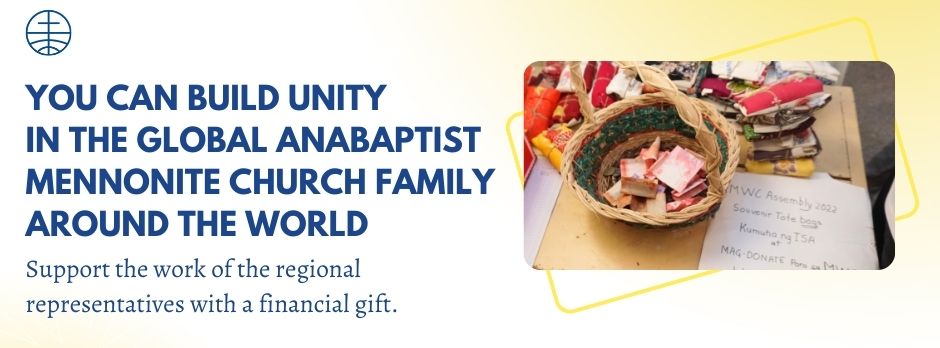“The pandemic has challenged churches to look for new ways of being the church – especially as we exist in a multi-religious society as a minority,” says Cynthia Peacock, regional representative for Southern Asia.
As an MWC regional representative, she relates to 350 local congregations, mainly through the nine national member churches in India and Nepal. “I meet with the leadership, lay leaders, members of congregations, read newsletters, and listen,” she says.
Now that pandemic restrictions are lifted, the regional representatives are able to meet with churches in person again, strengthening relationships.
“Economic crises, natural disasters and wars are serious threats,” says Agus Mayanto, regional representative for Southeast Asia. Congregations in Myanmar are displaced from their homes and suffering violent attacks in the civil war. Indonesia and the Philippines are frequently struck with natural disasters like flooding and typhoons.
“But at the same time, this can also be an opportunity for the church to be a good witness in the midst of a crisis: a light and blessing to those who need help.”
Siaka Traore, regional representative for Western and Central Africa, sees churches struggle when new leaders come into their roles, sometimes as a result of conflict, without training or experience. “Our wish is to see peaceful leadership transition with continuity,” he says.
In Southern Africa, represented by Danisa Ndlovu, climate change is a present concern. The recent super tropical cyclone caused devastation in Malawi and Mozambique on top of the cholera epidemic in Malawi. Zimbabwe has water rationing amid persistent water shortages.
“What is exciting to me is that amid all the challenges, the church has remained faithful and true to its calling,” he says.
Latin American churches rejoiced to resume some regional in-person gatherings.
“The sense of identification and belonging to the global family is growing amid churches of the region,” says Willi Hugo Perez, regional representative for Central America and Mexico. There are serious political and socioeconomic conflicts in the region including gang violence, poverty and migration. “With the wisdom of the Spirit, some are beginning to rethink their missional and pastoral tasks in the context of current realities.”
Some Anabaptist-Mennonite churches in Latin America are reticent about ecumenism. Nevertheless, they are passionate about bringing the message of salvation in Christ to those who are hungry to hear about hope in Jesus.
